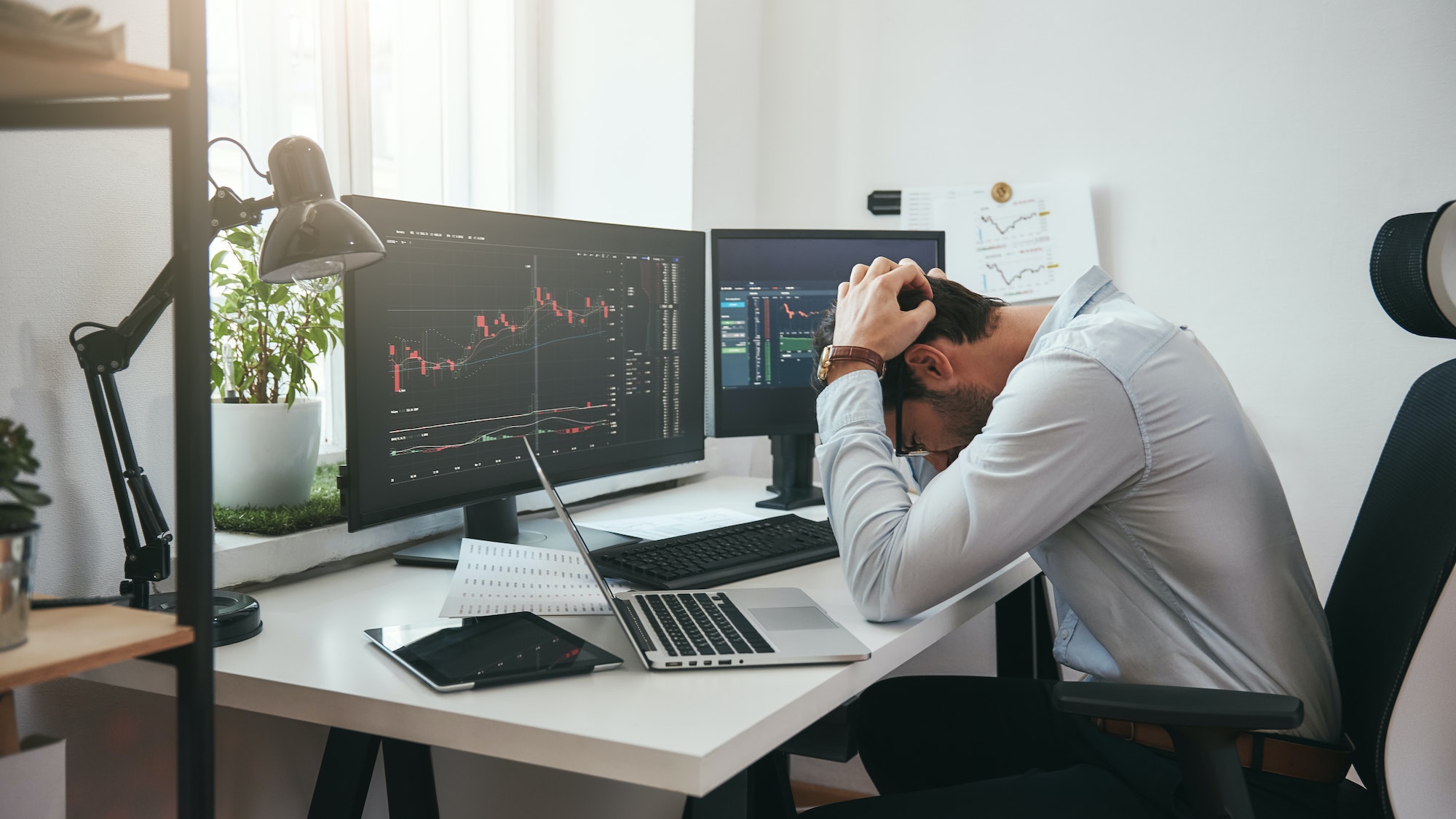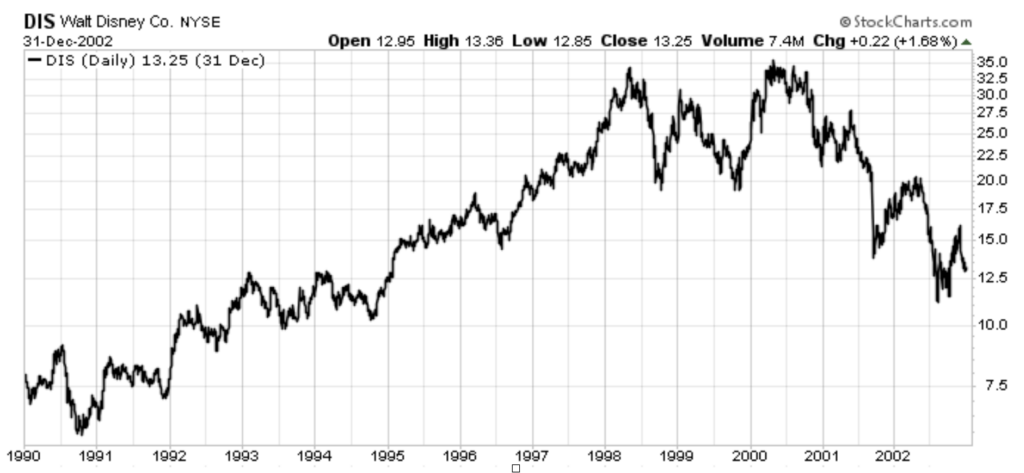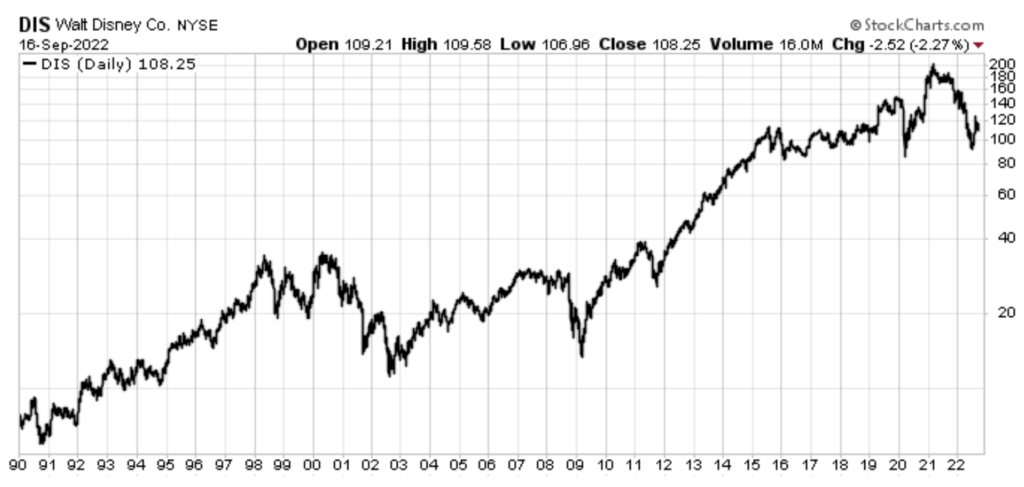

How to Profit From Booms and Busts
If you don’t understand cycles, stocks can cost you a lot of money.
My uncle is a great example.
Don’t get me wrong, I love my uncle. But he’s a classic duffer when it comes to the stock market.
Back in the late 1990s, his house flooded. He got a check from the insurance company and decided to put it to work in the stock market.
He asked around, and his friends told him to buy Walt Disney (NYSE: DIS).
That was a sensible argument because Disney shares soared throughout the 1990s.
The company put out some classic films like The Lion King and partnered with Pixar to make hits like Beauty and the Beast and Toy Story.
Disney shares soared from around $7.50 to a peak of around $35.
But the success was in the rearview mirror. By the end of the 1990s, Disney began to struggle, as you can see in this chart:

From 2000 to 2002, shares fell by over 60%. This was due to a combination of the market crash in 2000, struggling box-office results, and poor management of the company.
Because my uncle didn’t understand cycles (and had no exit strategy other than hope), he lost a lot of money. He finally sold in disgust.
Then Disney went on to do this:

Timing, as they say, is everything.
Every sector has some cyclicality to it. But resource markets are the absolute worst… or the best if you understand how they work.
As my friend Rick Rule likes to say, “You’re either a contrarian or a victim.”
What he means is, you have to steel yourself to buy when the cycle is low and get out when the cycle gets hot.
This makes sense until you’re in the moment… and then it’s particularly difficult.
My uncle did the exact opposite.
He bought a hot stock that all of his friends knew because shares had gone up forever. And then he waited until those shares cut him in half before he sold.
We see another difficult situation today.
Shares of the S&P 500 are down more than 12% in the past year, and the Nasdaq is down more than 22%. Investors are worried.
But if you understand the cyclical nature of the stock market, you should be getting excited. Because the shares we want to own are cheaper than they were a year ago.
Now, on to the news…
Numbers to Know
9.62%
The current yield of I Bonds, which are sold by the U.S. government. The rate is extremely high at the moment because I Bonds are adjusted for inflation. You can take advantage of this high yield by purchasing I Bonds before November 1. (The Motley Fool)
$54.20
The price per share at which Tesla CEO Elon Musk agreed to buy Twitter on Tuesday. The stock was initially halted, and then it surged 22% once trading resumed. Musk originally offered to purchase the social media company in April but later tried to back out of the deal. (CNBC)
100%
The amount of electricity that Babcock Ranch gets from solar panels. The 2,000-home community in Florida calls itself “America’s first solar-powered town.” Notably, the community took a direct hit from Hurricane Ian last week but didn’t have any power outages. (CNN)
What’s New in Sustainable Investing
Eviation’s all-electric Alice aircraft makes its maiden flight
The world’s first all-electric aircraft took its first flight last week. For the test, Alice traveled at an altitude of 3,500 feet for eight minutes. The passenger plane is designed to carry up to nine people and their luggage. Cape Air has already ordered 75 planes, while Global Crossing Airlines ordered 50. (TechCrunch)
Georgia senator introduces EV tax credit bill
Democratic U.S. Sen. Raphael Warnock’s new bill would expand which electric vehicles qualify for a $7,500 tax credit. The Affordable Electric Vehicles for America Act gives foreign automakers until 2026 to move production to North America. Only electric vehicles built and assembled locally are eligible for the tax credit. (Electrek)
Links We Like
“The Nobel Committee for Physiology or Medicine awarded the field’s top prize on Monday to Svante Pääbo, a Swedish geneticist who determined how to extract and analyze DNA from 40,000-year-old Neanderthal bones.” (Smithsonian Magazine)
“For the first time, the United States is designating a special diplomat to advocate for global biodiversity amid what policymakers here and overseas increasingly recognize as an extinction crisis.” (The Washington Post)
“Shifting current EV charging from home to work and night to day could cut costs and help the grid, according to a new Stanford study.” (Stanford)


